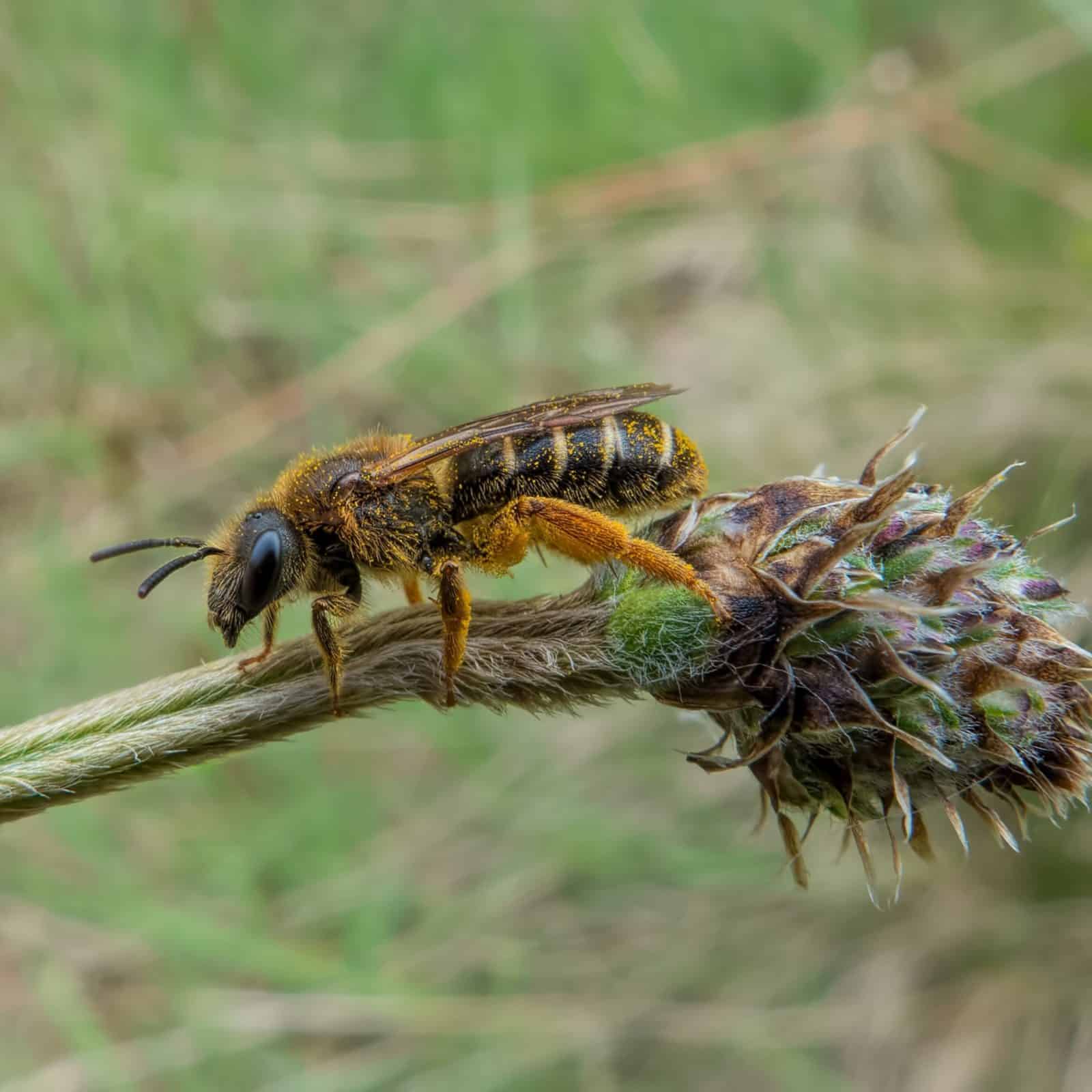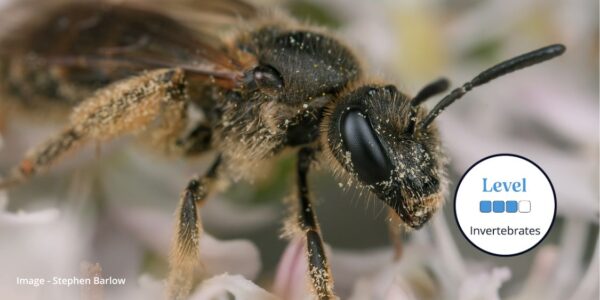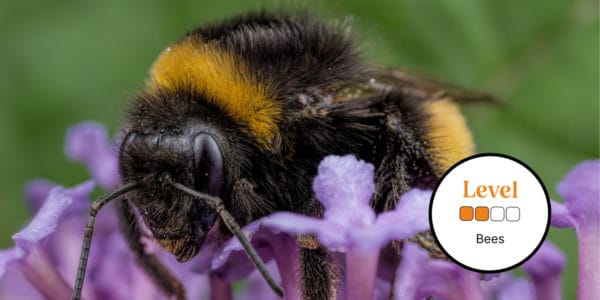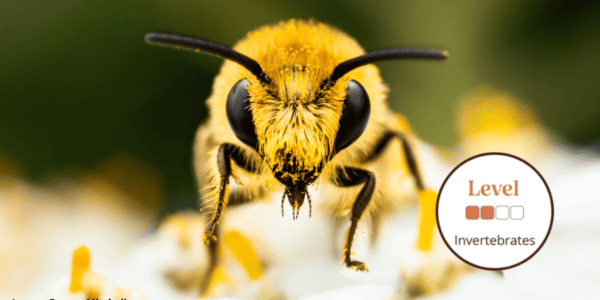This course on identifying insects using specimens and microscopes focuses on how to find and sample insects, how to prepare and curate specimens for identification purposes, and how to approach identification of your chosen species group.
The main objective of this course is to equip you with the necessary skills to carry out reliable and verifiable identifications, through the correct presentation of specimens and the use of keys and other entomological identification resources. You will be expected to select a suitable taxonomic group to specialise in, by building up your own reference collection of specimens!
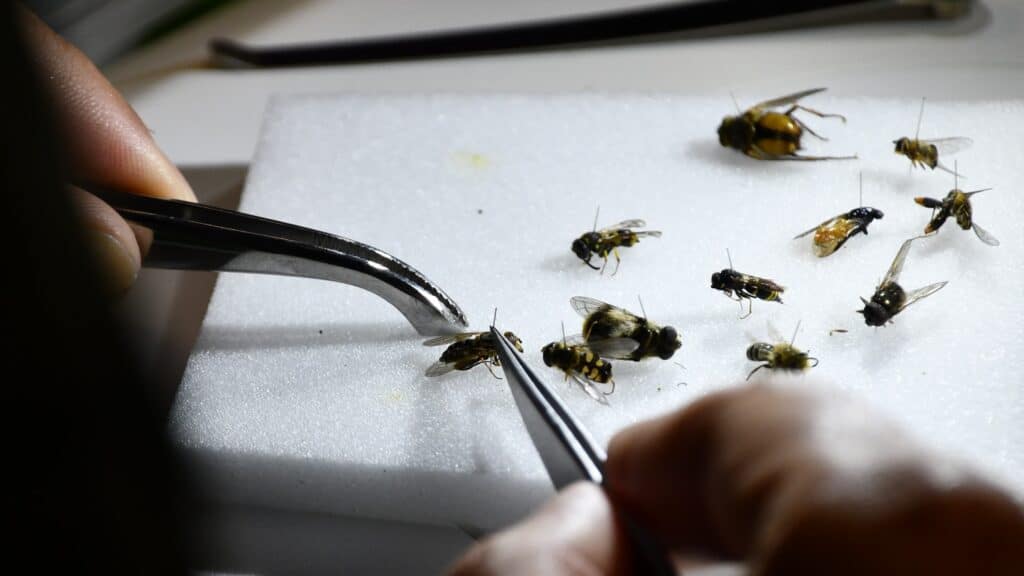

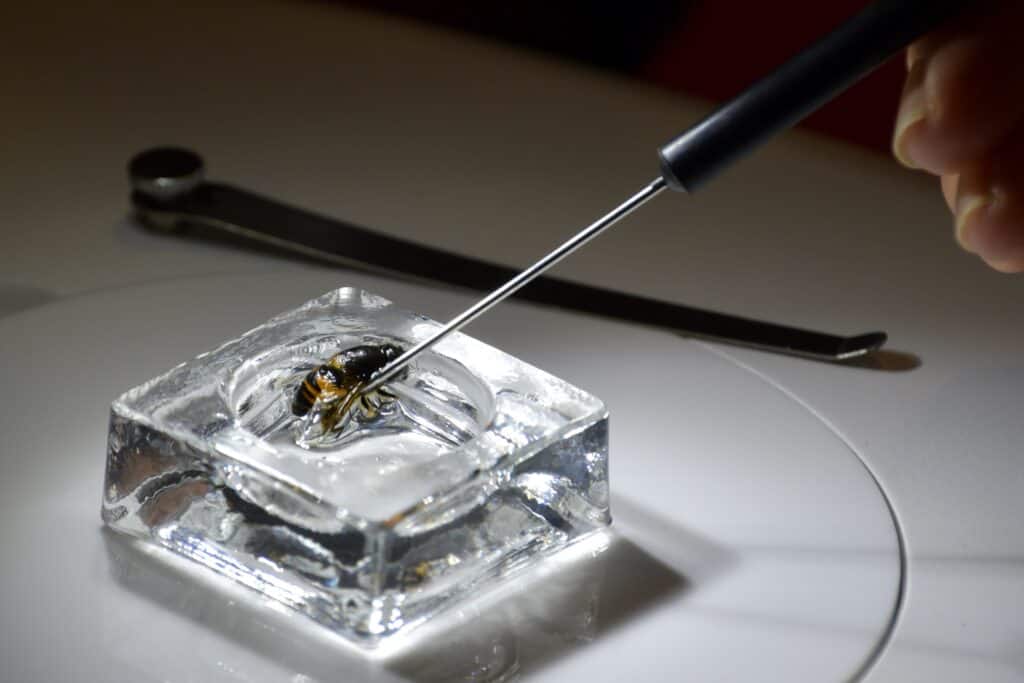
Read More
The course will provide you with an understanding of insect diversity, skills in collecting, preparing and curating voucher specimens, and how to accurately identify insect groups to species level. You will also be introduced to the issues associated with recording hard to identify species, and how this can be improved. Your fieldwork will take you out into the rich range of habitat within and surrounding the Preston Montford Centre nestled in the heart of Shropshire, where your course will take place.
What will be covered during this course?
- The course will be delivered through a combination of seminars, laboratory identification sessions and practical field work.
- Identifying a range of invertebrate groups in the field and in the lab using microscopes.
- Procedures for identifying selected insect groups to species level.
- Importance of accurate identification of such groups i.e. ecological history of sites and habitat quality, and recorder limitations in producing reliable biological records for insects.
- Issues with recording difficult groups: under recording of species or taxa as a result of identification issues; improving the recording of invertebrates and difficult groups.
- Appropriate resources to identify the specimens within a voucher collection and discussion of the use of identification resources for insects.
- Techniques for collecting and preparing voucher specimens for validation by a referee.
- Management of collections of voucher specimens.
- The use of referees and the validation system for difficult invertebrate groups.
By the end of the course, you will be able to:
- Analyse and discuss the procedures for identifying selected insect groups to species level.
- Critically assess the limitations of recorders in the identification of selected invertebrate groups to species level, with reference to the validation process, referees, and the use of digital images in recording.
Who Should Attend? – Natural history enthusiasts, students, rangers, ecologists, and environmental professionals. This intermediate level course is open to anyone with some knowledge of the subject. This course is for those aged 18 and over only.
Knowledge Level – Intermediate. Level descriptors can be found on the following web-page: Framework and Course Level Descriptors
There are two booking options which all include course tuition, meals and refreshments:
- Non-Resident (Breakfast not included)
- Resident (Sole Occupancy)
For course bookings including accommodation please note bathroom facilities may be shared.
MMU Student Information
MMU students – please email [email protected] to book your course place.
Accreditation
This is one of a series of courses (units) run jointly with Manchester Metropolitan University (MMU) contributing to the MSc Biological Recording and Ecological Monitoring and the Postgraduate Certificate in Biological Recording. MMU students complete assessed work after the course. For further details about Manchester Metropolitan University degree programmes please contact:
Department of Natural Sciences, Manchester Metropolitan University, (Shrewsbury Office). Email: [email protected]
See the ‘Example Timetable’ and ‘What’s Included’ sections below for more information about this course.
Upon booking you will need to provide individual details of all attendees.
Please email [email protected] if you have any questions.
Assessment
For Manchester Metropolitan University students, the Unit will be assessed through, for example, identification tests, survey reports, field journals, production of keys, essays or other forms of assessment. In course tests are optional and less formal for participants who are not MMU students.
MMU students will be required to complete a portfolio comprising of:
Part 1 Essay (1000 words, 50%):
Digital photography and the ease with which images can be shared online has changed the way that many people engage with insects and with recording schemes. Current developments in automated image recognition are adding another dimension to this. What are the advantages and disadvantages of the use of digital images in relation to insect recording in the UK, and what implications does this have for the associated recording and monitoring schemes?
Part 2 Species Portfolio (equivalent to 1000 words, 50%):
In consultation with your course tutor, choose an insect assemblage to focus on. This could be a range of different taxa from a particular location or habitat, or it could focus on one taxon group. For your chosen insect assemblage collect, identify and prepare at least 30 voucher specimens (representing a minimum of 15 species) that are representative of your chosen theme. You must include some species that are normally considered ‘difficult’ (in most cases this will mean species requiring dissection). Summarise the main characters used in identifying species within your chosen group. Explain how each specimen was identified and how you overcame any difficulties experienced in the identification.
Example Timetable
This timetable is subject to change but should give an outline of what to expect.
If you have booked accommodation with the Centre your bedroom will be ready from 3.00 pm onward on the day of arrival and we ask that you vacate by 9.30 am on the morning of departure.
If numbers are sufficient a station pick up will be arranged at 5.30 pm from Shrewsbury Station.
Please arrive in tim efor the evening meal at 6.30 pm on Firiday
The course starts after dinner with a classroom session 7.30 pm - 9.00 pm
The course ends at 4.00 pm on the final day.
Time will be made available for eating packed lunches during the day.
Friday:
Evening
Introductions; overview of insect diversity.
Saturday:
Morning
Introduction to collecting insects
Voucher specimen preparation and curation
Afternoon
Fieldwork – collection of representative specimens of key insect groups from the grounds of Preston Montford
Laboratory workshop
Evening
Lab work; use of identification keys
21.30 onward (optional) - light-trapping for moths and other insects
Sunday:
Morning
Field trip – collection techniques
Afternoon
Laboratory workshop – practical work on pinning, staging, carding and pointing of specimens, plus use of keys
Evening
Insect recording schemes and verification of records
Monday:
Morning
Improving insect recording
Afternoon
Laboratory workshop and/or further field work at Preston Montford
Final summaries and where to go for further information and help
What's Included
- Classroom learning covering the theory of the subject
- Field excursions to apply new knowledge
- Expert tuition for which we are renowned
- Clear objectives and progression
- All meals included (if that option is chosen when booking)
For course bookings including full board accommodation, please note bathroom facilities maybe be shared
Bursaries and Subsidies
Natural History Bursaries
There are a number of natural history bursaries available to help with the cost of your course. To find out if you and your chosen course are eligible, read more here.
Before You Attend
There will be a member of staff with first aid training and access to a first aid kit on site. If you have special medical or access requirements, please let us know as soon as possible so we can make any necessary adjustments.
What to Bring
- A hand lens is essential, preferably x10 and/or x20.
- Warm waterproof clothing and footwear.
- A field notebook and pencil.
- A sandwich box, vacuum flask and/or water bottle and a bag to carry your kit.
- Collecting equipment (e.g. nets, tubes, forceps) and specimen preparation materials (e.g. entomological pins, glue, labelling pens) will be available to borrow but you may wish to bring your own if you already own them.
- Identification keys and books will be available for use during the course but if you already have your own identification guides you may wish to bring them along.
- PURCHASE OF SPECIMEN STORAGE BOX NECESSARY FOR THE COURSE - TUTOR SUGGESTIONS: NHBS small store box, preferably the largest of the three size options: code #225057, £13.50, (230 x 150 x 54mm). If possible you should also bring a ziplock-type plastic bag in which to keep the storage box and prevent pests attacking any specimens.
- For MSc students to use for their assignment collection, at least two of the above boxes would be required. An alternative would be the larger NHBS Wooden Storage Box Model A - the smaller size, #246414 at £28.99, should be sufficient.
- If neither of those are possible, then it may also be possible to use a spare sandwich box or other strong box. This will need to be lined with a material into which pins can be positioned; the ideal material is plastazote (which we may be able to provide on the course), but otherwise polystyrene or a cork tile cut to fit the base would be okay.
Useful Resources
Guidance will be provided on the most useful books and other resources for the invertebrate group you decide to focus on. Here are some weblinks that provide information on invertebrate specimens in general:
- BENHS resource sheets on specimen curation
- Field Studies Council blog on why we need to collect invertebrates
- Chris Raper on collecting, especially of flies
- Rich Burkmar’s blog on entomologists and alcohol supplies
Recommended Reading
Opportunities to attend this course
-
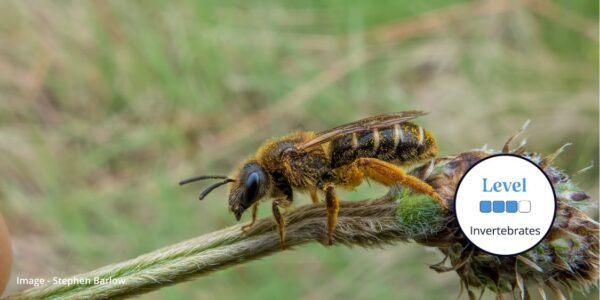
Fri 12, July 2024 18:30 - Mon 15, July 2024 16:00
MMU students - please email [email protected] to book your course place.
Progress Your Learning
This is a training course from the Field Studies Council, delivered by expert tutors with an approachable learning style. After attending this course, you may like to progress your learning with further relevant courses or branch out into other areas of natural history. The Field Studies Council offers both online and in person courses, so you can choose the learning style that suits you best.
The course gives you the opportunity to immerse yourself in a new subject and acquire novel skills. Our online portal gives you time to study at your own pace and fit the lessons around your own schedule.
If you have any questions about our online courses please check our Frequently Asked Questions
Please email [email protected] if you have any questions.
Group Bookings Made Easy
If you have a group of 10 or more individuals wanting to complete one of our courses, our team are available to discuss your options – from discounts to private team courses. Find out more!
You can rest assured that the absolute best content from an expert in environmental education will be at your fingertips. In choosing a Field Studies Council course, you will be joining thousands of people who learn with us each year.

